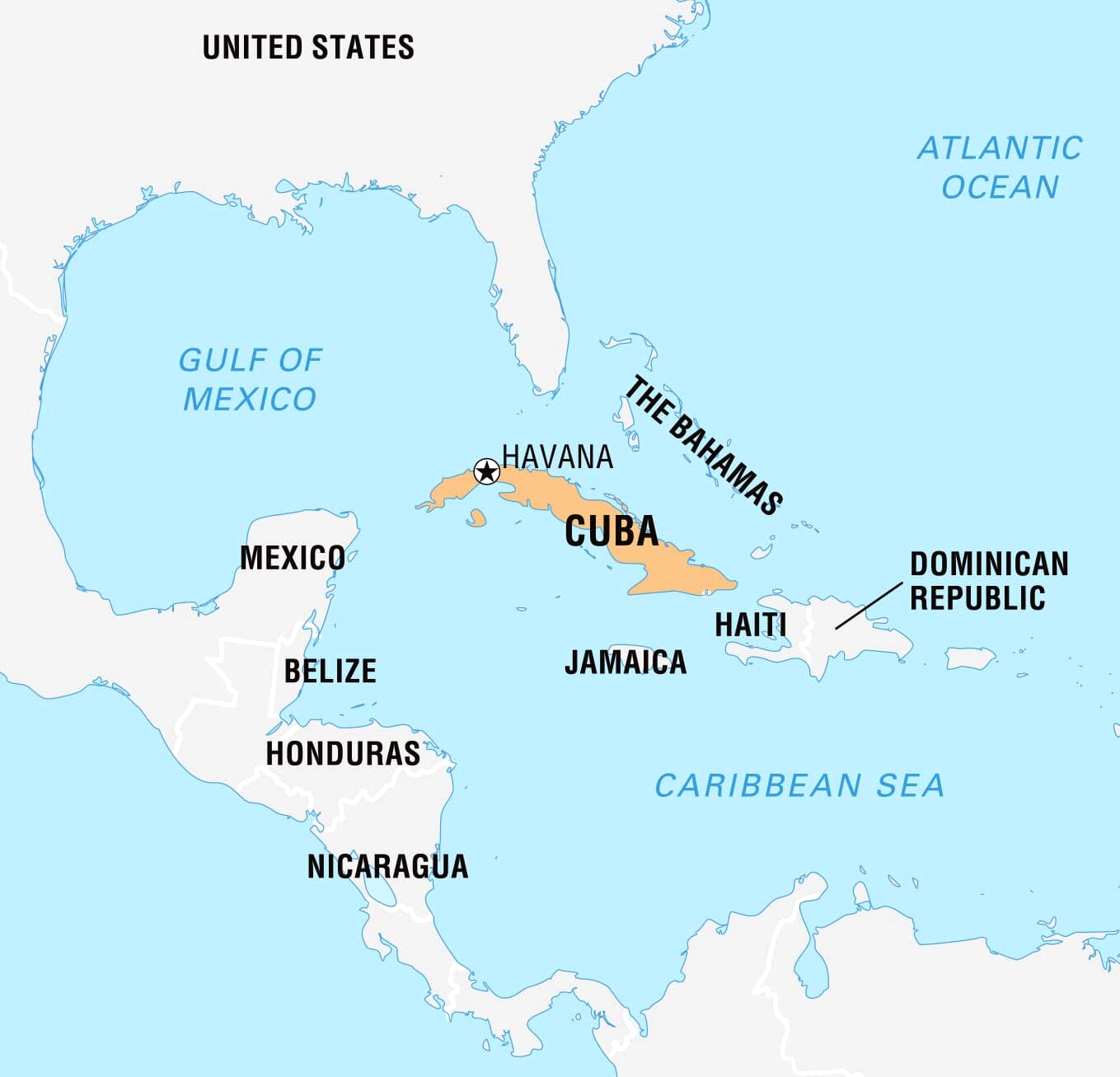India-Cuba Relations | 20 Apr 2021
Why in News
The retirement of Raul Castro as the first secretary of Cuba’s ruling Communist Party brings to an end the six-decade-long rule of the “historic generation”, who, under the leadership of Fidel Castro, captured power in 1959 through an armed revolution.
- Earlier in January 2021, the US State Department had designated Cuba as a State Sponsor of Terrorism for repeatedly providing support for acts of international terrorism in granting safe harbour to terrorists.
Key Points
- History of Cuba:
- From the 15th century, it was a colony of Spain until the Spanish–American War of 1898, when Cuba was occupied by the United States and gained nominal independence as a de facto United States protectorate in 1902.
- In 1940, Cuba attempted to strengthen its democratic system, but mounting political radicalization and social strife culminated in a coup and subsequent dictatorship under Fulgencio Batista in 1952.
- Open corruption and oppression under Batista's rule led to his ousting in January 1959 by the 26th of July Movement, which afterwards established communist rule under the leadership of Fidel Castro.
- Since 1965, the state has been governed by the Communist Party of Cuba.
- The country was a point of contention during the Cold War between the Soviet Union and the United States, and a nuclear war nearly broke out during the Cuban Missile Crisis of 1962.
- In 2019, a new Constitution was approved which officially recognizes the right to private property, while also reassuring the central government's authority over the regulation of production and land.
- India-Cuba Relations:
- Political:
- India was amongst the first countries to extend recognition to Cuba after the 1959 Revolution. Both countries have maintained close contacts with each other in various international fora, such as the United Nations (UN), Non-Aligned Movement (NAM), World Trade Organization (WTO), etc.
- India has been supporting Cuba against US supported resolutions at the UN Human Rights Council and also consistently voted in favour of Cuban sponsored resolutions in the UN General Assembly calling for lifting of US sanctions against Cuba.
- Cuba supports India's inclusion as a permanent member in the restructured UN Security Council.
- Cuba also voted in favour of India’s candidature for Non-Permanent Seat in UNSC.
- Cuba has also joined the International Solar Alliance, an India-France initiative.
- Economic:
- Bilateral trade between India and Cuba stands at USD 38.81 Million (as of 2017).
- India and Cuba agreed to collaborate in the areas of Biotechnology, Homeopathy and the traditional system of medicine during the visit of the President of India to Cuba in 2019.
- India provides development assistance to Cuba in various sectors, and in January 2019 made a donation of 60 tractors with accessories, medicines and medical equipment to the island.
- Cultural:
- In Cuba, Yoga and Vipassana meditation are practiced. Interest in Ayurveda and Indian Naturopathy is increasing.
- Rabindranath Tagore’s birth anniversary is celebrated every year.
- In May, 2007, a bust of Rabindranath Tagore donated by the Indian Council for Cultural Relations (ICCR) was unveiled in Old Havana.
- There is a bust of Mahatma Gandhi and a statue of Mother Teresa in Havana.
- Cuba also celebrated International Day of Yoga, Mahatma Gandhi’s 150th birth anniversary and 550th anniversary of Guru Nanak Dev.
- Political:
Way Forward
- Both Cuba and India have been united for many years and there is common ground in their struggles to achieve a multi-polar world. Both countries are great friends, however these magnificent political ties must be developed more in the economic and commercial field.

